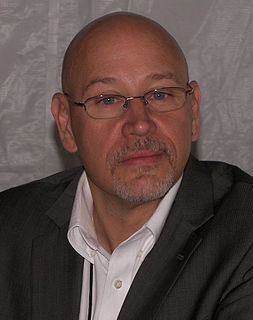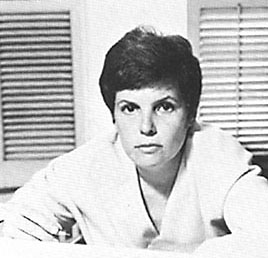A Quote by Gail Carriger
The door was locked and Alexia, resourceful as she was, had not yet learned to pick locks. Though she mentally added it to her list of useful skills she needed to acquire along with hand-to-hand combat and the recipe for pesto. If her life were to continue on its present track which after 26 years of obscurity, now seemed to mainly involve people trying to kill her, it would appear that acquiring a less savory skill set might be necessary. Although she supposed pesto making ought to be termed 'more savory'.
Quote Topics
Acquire
Acquiring
Added
After
Along
Although
Appear
Combat
Continue
Door
Had
Hand
Her
Involve
Learned
Less
Life
List
Locked
Locks
Mainly
Making
Mentally
Might
More
Necessary
Needed
Now
Obscurity
Ought
People
Pick
Present
Recipe
Resourceful
Savory
Seemed
Set
She
Skill
Skills
Supposed
Though
Track
Trying
Useful
Were
Which
Would
Years
Related Quotes
She had always been a reader… but now she was obsessed. Since her discovery of the book hoard downstairs from her job, she’d been caught up in one such collection of people and their doings after the next…The pleasure of this sort of life – bookish, she supposed it might be called, a reading life – had made her isolation into a rich and even subversive thing. She inhabited one consoling or horrifying persona after another…That she was childless and husbandless and poor meant less once she picked up a book. Her mistakes disappeared into it. She lived with an invented force.
She had learned, in her life, that time lived inside you. You are time, you breathe time. When she'd been young, she'd had an insatiable hunger for more of it, though she hadn't understood why. Now she held inside her a cacophony of times and lately it drowned out the world. The apple tree was still nice to lie near. They peony, for its scent, also fine. When she walked through the woods (infrequently now) she picked her way along the path, making way for the boy inside to run along before her. It could be hard to choose the time outside over the time within.
As though she had entered a fable, as though she were no more than words crawling along a dry page, or as though she were becoming that page itself, that surface on which her story would be written and across which there blew a hot and merciless wind, turning her body to papyrus, her skin to parchment, her soul to paper.
She remembered that once, when she was a little girl, she had seen a pretty young woman with golden hair down to her knees in a long flowered dress, and had said to her, without thinking, "Are you a princess?" The girl had laughed very kindly at her and asked her what her name was. Blanche remembered going away from her, led by her mother's hand, thinking to herself that the girl really was a princess, but in disguise. And she had resolved that someday, she would dress as though she were a princess in disguise.
Before her marriage she had thought that she had love within her grasp; but since the happiness which she had expected this love to bring her hadn’t come, she supposed she must have been mistaken. And Emma tried to imagine just what was meant, in life, by the words “bliss,” “passion,” and “rapture” - words that had seemed so beautiful to her in books.
Will only looked at her. There had been light in his eyes on the stairs, as he'd locked the door, when he'd kissed her--a brilliant, joyous light. And it was going now, fading like the last breath of someone dying. She thought of Nate, bleeding to death in her arms. She had been powerless then, to help him. As she was now. She felt as if she were watching the life bleed out of Will Herondale, and there was nothing she could do to stop it.
As she had been walking from the ward to that room, she had felt such pure hatred that now she had no more rancor left in her heart. She had finally allowed her negative feelings to surface, feelings that had been repressed for years in her soul. She had actually FELT them, and they were no longer necessary, they could leave.
She writes that one of the moments that she felt most useful was when her mother had a headache, and she would stroke her head and rub her forehead. And I think Eleanor Roosevelt's entire life was dedicated to two things: (one) making it better for all people, people in trouble and in need, like her family.
The pain was as unexpected as a thunderclap in a clear sky. Eddis's chest tightened, as something closed around her heart. A deep breath might have calmed her, but she couldn't draw one. She wondered if she was ill, and she even thought briefly that she might have been poisoned. She felt Attolia reach out and take her hand. To the court it was unexceptional, hardly noticed, but to Eddis it was an anchor, and she held on to it as if to a lifeline. Sounis was looking at her with concern. Her responding smile was artificial.
Sophie has a gift," she said. "She has the Sight. She can see what others do not. In her old life she often wondered if she was mad. Now she knows that she is not mad but special. There, she was only a parlor maid, who would likely have lost her position once her looks had faded. Now she is a valued member of our household, a gifted girl with much to contribute.
She had been looking all along for a friend, and it took her a while to discover that a lover was not a comrade and could never be - for a woman. And that no one would ever be that version of herself which she sought to reach out to and touch with an ungloved hand. There was only her own mood and whim, and if that was all there was, she decided to turn the naked hand toward it, discover it and let others become as intimate with their own selves as she was.
She didn't care anymore... and she got no pleasure from the work she did, but she did it. Everything bored her. She found that when she didn't have a notebook it was hard for her to think. The thoughts came slowly, as though they had to squeeze through a tiny door to get to her, whereas when she wrote, they flowed out faster than she could put them down. She sat very stupidly with a blank mind until finall 'I feel different' came slowly to her mind. Yes, she thought, after a long pause. And then, after more time, 'Mean, I feel mean.
Selfishly, perhaps, Catti-brie had determined that the assassin was her own business. He had unnerved her, had stripped away years of training and discipline and reduced her to the quivering semblance of a frightened child. But she was a young woman now, no more a girl. She had to personally respond to that emotional humiliation, or the scars from it would haunt her to her grave, forever paralyzing her along her path to discover her true potential in life.
[Keeping kosher was] the symbol of an initiation, like the insignia of a secret brotherhood, that set her apart and gave her freedom and dignity. Every law whose yoke she accepted willingly seemed to add to her freedom: she herself had chosen . . . To enter that brotherhood. Her Judaism was no longer a stigma, a meaningless accident of birth from which she could escape . . . It had become a distinction, the essence of her self-hood, what she was, what she wanted to be, not merely what she happened to be.





































